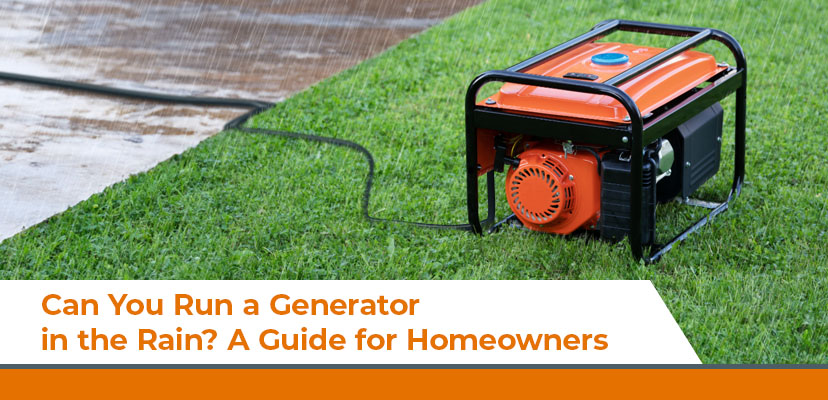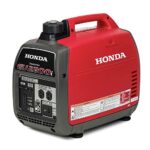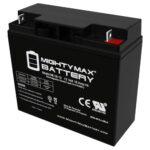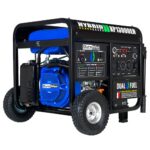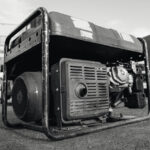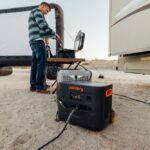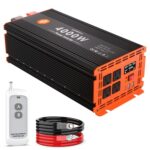Finding Can You Run a Generator in the Rain? Running a generator in the rain is not safe. Generators and water don’t mix well.
Generators are handy during power outages, but rainy weather poses risks. Wet conditions can cause electrical hazards and damage the generator. It’s vital to understand the dangers before deciding to use a generator in the rain. This blog post explores the risks and offers safety tips.
Learn how to protect yourself and your equipment during stormy weather. Stay safe and informed.
Generator Safety Concerns
Running a generator in the rain can be dangerous. Water and electricity do not mix well. Wet conditions can cause short circuits. This may lead to shocks or fires. Keeping the generator dry is important. Use a canopy or tent to protect it. Make sure the cover allows air flow. Never use a generator indoors. Ventilation is key to safe use.
Generators produce carbon monoxide. This gas can be deadly. It is invisible and odorless. Do not run a generator in enclosed spaces. Keep it at least 20 feet from windows and doors. Use a carbon monoxide detector to stay safe. Always follow the manufacturer’s guidelines. Safety first.
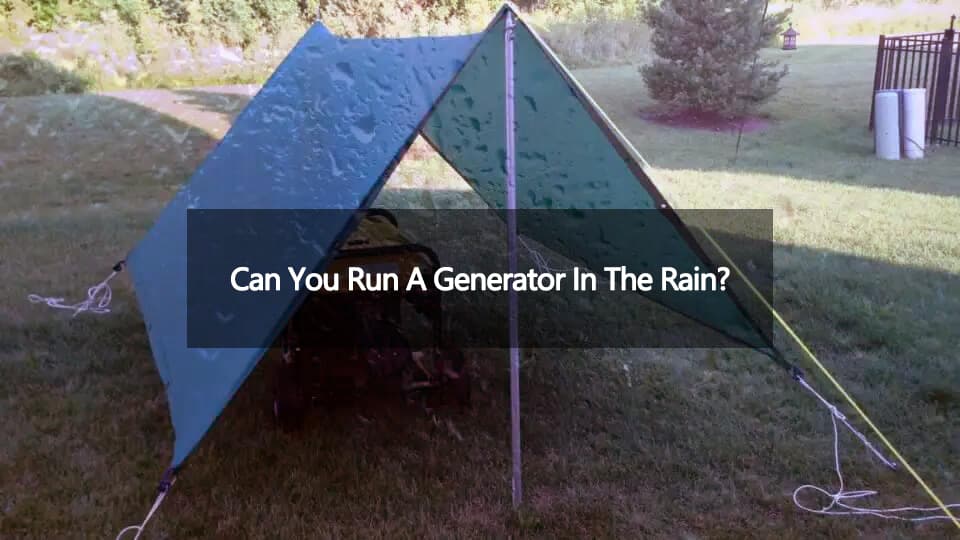
Credit: www.bisonindustry.com
Generators And Weather Conditions
Running a generator in the rain is not safe. Water can damage the generator. It may cause electrical shock. Always cover the generator. Use a canopy or tent. Keep it dry at all times. Place the generator on a dry surface. Never use it in standing water. Safety first.
Generators can be used in snow. But keep them free from snow and ice. Ice can block air vents. This can cause overheating. Keep the generator covered. Use a tent or enclosure. Clear off snow and ice often. Make sure the generator stays dry. Safety is important.
Impact Of Rain On Generators
Generators can get damaged by water. Rain can enter the generator. This can cause rust and corrosion. Metal parts can rust. This will reduce the lifespan of the generator. Water can also damage the electrical components. This can make the generator stop working.
Rain can cause a short circuit. Water can get into the wires. Wet wires can cause sparks. Sparks can lead to fires. Short circuits can damage the generator. It can also harm other devices connected to it.
Credit: www.reddit.com
Protecting Your Generator
Generators need protection during rain. A weatherproof cover is essential. It keeps the generator safe. These covers prevent water from entering. Water can damage the generator. This can lead to costly repairs. Choose a cover that fits well. Make sure it is durable. Some covers have vents. These vents allow air to circulate. This prevents overheating.
Correct placement of the generator is crucial. Place it on a dry surface. Avoid puddles and wet areas. Put the generator under a shelter if possible. A garage or shed works well. Keep it away from windows and doors. This prevents fumes from entering the house. Proper placement ensures safety. It also prolongs the generator’s life.
Alternative Solutions
Running a generator in the rain can be risky. Water can damage the generator and cause electrical hazards. Consider using a canopy or tent for protection.
Indoor Use Options
Generators should not run indoors. Indoor use poses a carbon monoxide risk. Explore battery-powered options. Battery packs are safe for indoor use. They can power small devices. Look for models with USB ports. Solar generators are also a good choice. They charge by sunlight. They work well for small electronics.
Backup Power Plans
Plan for power outages before they happen. Store flashlights and batteries. Keep a manual can opener. Stock up on non-perishable food. Consider a car inverter. It can power small devices from your car. Always have extra fuel for outdoor generators. Make sure to use generators safely. Never use them in enclosed spaces.

Credit: www.gentent.com
Maintenance Tips
Perform regular checks on your generator. Ensure it is clean and free of debris. Check the oil level and top it up if needed. Inspect the air filter and replace it if dirty. Also, look at the spark plug and clean or replace it if required. Make sure all connections are secure.
Inspect the generator after harsh weather. Look for any signs of water damage. Ensure the generator is dry before use. Check for rust or corrosion on metal parts. Make sure the generator cover is intact and provides proper protection. If the cover is damaged, replace it immediately.
Legal And Safety Guidelines
Check your local regulations. Some places ban running generators in the rain. Read the laws for your area. This can save you from fines or legal trouble. Always stay informed and safe.
Always follow the manufacturer instructions. They know their product best. Check the manual for any safety tips. The manual will tell you if it’s safe to use in wet conditions. Never ignore these guidelines.
Emergency Preparedness
Power outage kits should include flashlights, batteries, and a first aid kit. A radio helps you stay informed. Pack enough water and food for three days. Include basic tools and supplies. Store blankets and warm clothes. Keep your phone charged. A portable charger is useful.
Never run a generator indoors. Keep it dry at all times. Use a cover if it rains. Place it on a flat surface. Maintain at least 20 feet distance from the house. Ensure proper ventilation. Avoid touching it with wet hands. Follow all safety guidelines.
Frequently Asked Questions
Can You Run A Generator In Wet Conditions?
It’s unsafe to run a generator in wet conditions. Water can damage the generator and pose an electrocution risk. Always use a cover or shelter.
How To Protect A Generator From Rain?
Use a generator tent, cover, or a specially designed enclosure. Ensure proper ventilation to avoid overheating while protecting it from rain.
What Happens If A Generator Gets Wet?
If a generator gets wet, it can short-circuit, leading to potential damage. It may also pose an electrocution hazard. Dry it completely before use.
Can You Use A Portable Generator In The Rain?
Using a portable generator in the rain is not recommended. Moisture can cause electrical hazards and damage the generator. Use protective covers.
Conclusion of Can You Run a Generator in the Rain?
Running a generator in the rain can be dangerous. Water and electricity don’t mix well. Always prioritize safety. Use a canopy or tent to protect the generator. Keep it dry and well-ventilated. Read the manual for specific instructions. Place the generator on a dry surface.
Avoid wet grass or puddles. Safety should always come first. Proper care ensures your generator works efficiently. Stay safe and keep your generator running smoothly.

